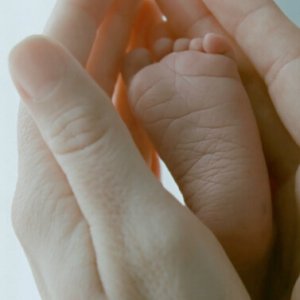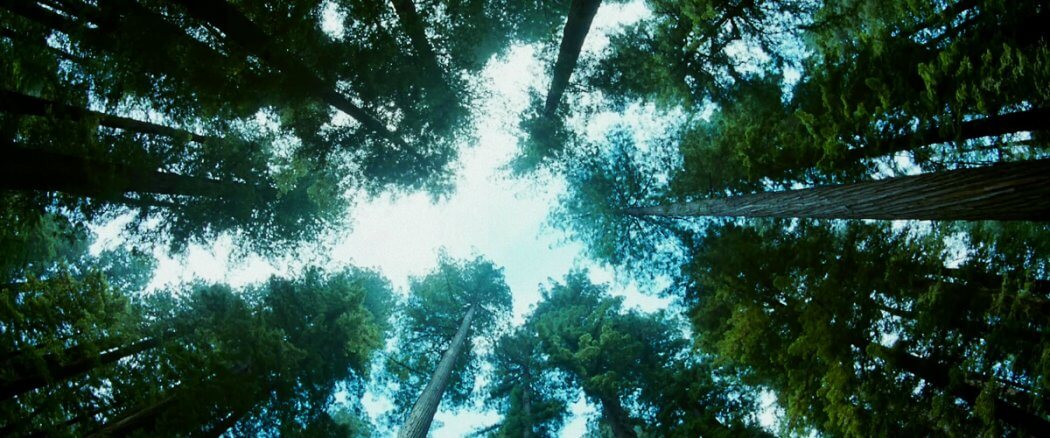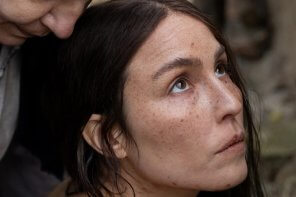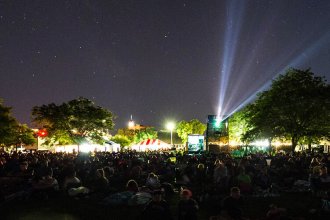What if I told you that the three most recent movies from Terrence Malick are the greatest Christian movies ever made?
Well, first, you’d probably ask me, “Who is Terrence Malick?” And even if you know who Malick is, your next thought would probably be along the lines of: “Are you serious!??”
Granted, Malick films are not blockbuster action filled super hero flicks that entertain and leave us buzzing about the plot twists. Nope, they are truly works of art. In fact, they may be more closely compared to Sydney Pollack than Stephen Spielberg. But for sure, watching these movies is like walking through New York’s Museum of Modern Art where you are constantly asking yourself, “What does this mean?” “Is there a point to this?” “Did I actually pay for this?”
To me, his three latest films: The Tree of Life, To the Wonder, and The Knight of Cups, are all connected and form a trilogy, or should I say, a trinity. Their cinematic style, storytelling, themes, and meaning are all so deeply connected and tie together so beautifully that its hard to believe they were not meant to go together. No, they are not connected by characters or plot — rather, they are connected by meaning. And if you squint you can see that they are about: The Father, The Son and The Holy Spirit.
Ok — so I’m assuming most of you haven’t seen these films so just follow me for fun…
The Tree of Life and God the Creator
This is the first of the three and came after an incredibly long absence (20 years?) in Malick’s film career and, by far, is the best of the three. Its creativity and cinematic genius overwhelm us with visual artistry we have not seen before on the big screen. The film opens with a quote from Job (ok, let that sink in a moment — a Hollywood movie opens with a quote from the Biblical story synonymous with suffering)…and follows the story of a man and woman raising two boys. But woven in the unfolding drama of family life are incredible scenes from nature, from the stars and planets, from lava flows and dinosaurs and more!
 The Tree of Life is a story about nature versus grace. Specifically the story of humanity’s struggle and constant tension with the domination of nature in an attempt to be strong and survive as evidenced by the family’s father, compared to the grand waterfall of soul refreshing grace as evidenced by the mother.
The Tree of Life is a story about nature versus grace. Specifically the story of humanity’s struggle and constant tension with the domination of nature in an attempt to be strong and survive as evidenced by the family’s father, compared to the grand waterfall of soul refreshing grace as evidenced by the mother.
But remember what this is all about: Job, the righteous man who endures suffering. At the end of the book, Job asks God: Why must I suffer? God responds with a ranting monologue reminding Job that God created the stars and the heavens and named the planets and sums with God saying to Job, “Where were you oh mortal man when all of this was created?” — but never answering Job’s original question.
The Tree of Life is a film about the ancient question: What do we do with evil? Why do the righteous suffer? Why is life so hard? Why must we lose those we love? And God’s response, mimicking the response in Job — God is there, in the midst of it all.
There are no easy answers. No quick fixes. Just the constant life of nature and grace — which both flow from God’s sovereignty. All humans are bound in this struggle — but God is there too. In the midst of suffering, the creative presence of God abides.
To the Wonder and Christ’s Perfect Love
Malick’s second film is very difficult to watch unfold. To the Wonder is about love and begins with the flame; the incredibly evocative and intoxicating passion that love can be. We are joined with two lovers in the early days of a blossoming relationship and they are dripping with the drug of passion for one another.
But as the movie unfolds, their love begins to die as they encounter difficulties in their marriage, sexual frustrations, medical complications, children and the lack of, affairs, loneliness…Malick is showing us the truth of love, that it can be exhilarating but it can also leave us paralyzed.
 But either way, we must navigate love in this life. Love is essential to the human condition, sewn inside our soul. When we love, the world is full of wonder — like a castle set on a hill that we explore and take refuge. But when we become distracted and loose sight, when love is missing or withheld, our lives become just a shell of existence.
But either way, we must navigate love in this life. Love is essential to the human condition, sewn inside our soul. When we love, the world is full of wonder — like a castle set on a hill that we explore and take refuge. But when we become distracted and loose sight, when love is missing or withheld, our lives become just a shell of existence.
And just when we had given up, Malick introduces us to the Priest in the film, who reminds us that to love is to run the risk of betrayal. But yet, in the great paradox of life, if we do not risk then we will never be fulfilled. It is the priest who reminds us that in the midst of this life of love, we find Christ.
For Christ is the one that loved first — that risked, was betrayed but yet continued the pursuit even past the bounds of death and hate. Our thirst for meaning, for purpose and for love culminates in Jesus, who became like us to show us the way “to the wonder” — to God’s unconditional, extravagant love. And if we are looking we will realize that everywhere we turn we see the face of God, in the midst of every ounce of love and sacrifice and goodness and hope we see the God of love caring for the wounds of humanity. God is there in the midst of it all through the love and faithfulness of Christ.
The Knight of Cups and the Holy Spirit
Finally, we come to the final film, The Knight of Cups which is based on an ancient parable that goes something like this:
A young man, a knight and the son of the king, is sent by his father to a far away land to search for a great and valuable pearl — but when he gets to this new land he is given a cup to drink, which makes him forget who he is, giving him amnesia — and he keeps drinking this cup and living in destitution never remembering who he truly is.
The film, set in the movie industry of Hollywood (Malick is probably saying something about Hollywood here too) — we find a character who has lost his way. Who has seemingly gained the world and lost his soul — sold out for fame and riches and is constantly trying to remember who he is — through flashbacks of his father.
 In a way, this character represents the Prodigal Son. Malick also uses the classic Christian book Pilgrim’s Progress to give meaning to the unfolding narrative — and seems to relate to the journey found in Pilgrim’s Progress where doom and frustration constantly attempt to pull us off the path of purpose.
In a way, this character represents the Prodigal Son. Malick also uses the classic Christian book Pilgrim’s Progress to give meaning to the unfolding narrative — and seems to relate to the journey found in Pilgrim’s Progress where doom and frustration constantly attempt to pull us off the path of purpose.
This films parades the importance of memory and seems to suggest that we are constantly being offered a cup of forgetfulness that will suppress our true identities from our very selves. We are searching for something — but just can’t remember what it is. We know we are someone — but who exactly are we?
In bits and pieces we try to remember that we are children of the king and we do not need to live in exile in a far away land any longer, that we can come home, we can get back on the path and find life and purpose once more. But how can we remember?
Only through the force of the Spirit who tirelessly is working to break the spell of the cup and to remind us of our true identities. Through situations, through other people, through reflection and memory — the Spirit is working to remind us that we can come home. To remind us that our Father loves us and is waiting on our arrival.
Broken People in a Broken World
For sure, these are not your typical Christian movies — but they may possibly be the greatest ever made as they probe the depths of life, the frustrations of existence, the questions of suffering, the torment of love, and the constant struggle of identity. To me, each of these is intensely spiritual and points us to the triune God — Creator, Christ, Spirit.
These films will make you uncomfortable, but they are truly an imitation of the beautiful and broken life we all live in — and the search we are all on.
Malick reminds us that we are all deeply broken people living in a deeply broken world searching for a pearl that will give our life meaning. And in the midst of the labyrinth of experience, the depth of suffering, and insecurity of our identity — we find God — always there, always present, always loving, always mysteriously and softly calling us home.





